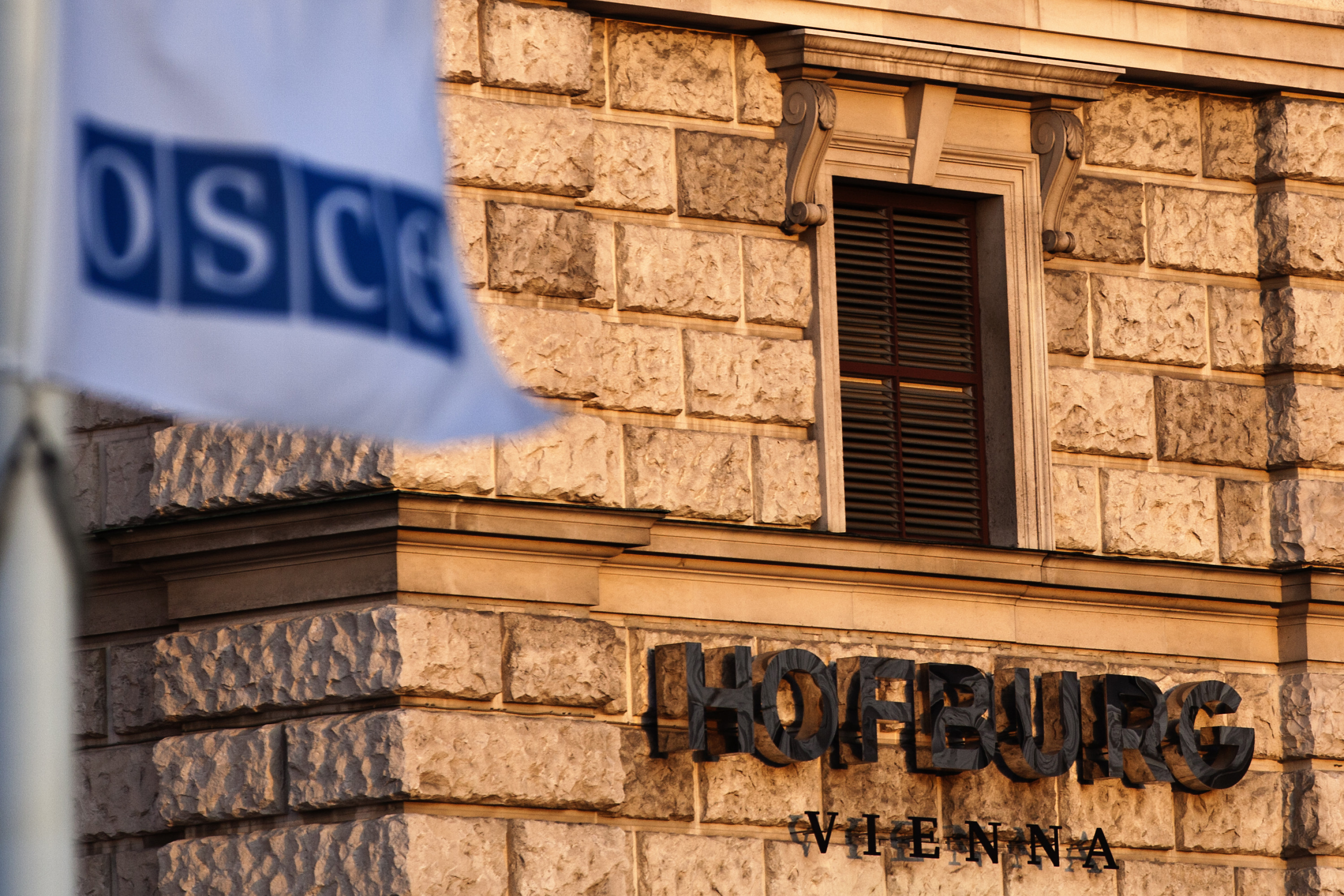EU Statement on political repression and the death penalty in Belarus
https://spring96.org/en/news/107710
2022
2022-05-13T23:23:00+0300
2022-05-13T23:23:00+0300
2022-05-14T11:31:44+0300
en
https://spring96.org/files/images/sources/osce_vienna.jpg
The Human Rights Center “Viasna”
The Human Rights Center “Viasna”
The Human Rights Center “Viasna”
The Human Rights Center “Viasna”
On May 12, the OSCE Permanent Council issued a statement on political repression and the death penalty in Belarus.
- The European Union condemns in the strongest terms Russia’s war of aggression against Ukraine, as well as the Belarusian regime’s complicity in this aggression by providing its territory and infrastructure, in blatant violation of the UN Charter, international law, including the UN General Assembly Resolution No. 3314 and OSCE principles and commitments. We regret that the ongoing internal repression of human rights and fundamental freedoms in Belarus mirrors and lays the ground for the facilitation of acts of external aggression. We reiterate that the human dimension commitments are matters of direct and legitimate concern to all participating States and do not belong exclusively to the internal affairs of the State concerned.
- Since the fraudulent presidential elections of 9 August 2020 and the unprecedented repressions that followed, our trust in Belarus’ willingness to live up to its OSCE commitments has been seriously shaken. Now, given its role in the Russian aggression against Ukraine, Belarus has been further isolated within the wider international community, facing enhanced sanctions and condemnation.
- At the same time, it is clear that the Belarusian people do not want to be associated with this illegal war of aggression and the heinous crimes committed in Ukraine. The EU commends the courageous people of Belarus for not staying silent or indifferent, no matter how risky that is.
- The EU deplores the further increased political repression by the regime in Minsk, including through widening the scope for the use of capital punishment to vaguely defined “attempted terrorist activities” - a regrettable move that goes in the opposite direction to the global trend of abandoning the death penalty. The changes to the Belarusian Criminal Code and other legislation on death penalty are not a matter of justice or better regulation by the regime, but an enhanced instrument of political repression against Lukashenka’s opponents and Belarusian people, who “dared” toprotest against the regime or against the war in Ukraine. The real objective behind these draft amendments is to further step up repression against those who defend democracy, condemn the Belarusian regime’s support to Russia’s war of aggression against Ukraine, and demand their voices are heard and their rights and freedoms respected.
- According to the Human Rights Center “Viasna”, on 12 May 2022 there were 1187 political prisoners in Belarus. Many political prisoners (at least 36) have been charged or already condemned to long prison terms under the Code’s so-called “terrorism” provisions. Many representatives of the democratic forces and political activists are wanted under “terrorism” charges. Many of the accused are tried in secret, unfair and biased trials, often under fabricated charges and with no legal safeguards. Many political prisoners are subjected to torture and other forms of cruel, inhuman or degrading treatment or punishment. Now, anyone opposing the regime also risks being charged with attempted terrorism, convicted to death and secretly executed.
- The EU is also extremely concerned about Belarusian authorities’ plans to adopt a separate law on civil society to tighten legislative control, and the recent attack on the independent trade unions.
- The EU reiterates its call on Minsk to immediately and unconditionally release and rehabilitate all political prisoners and to stop violating human rights and fundamental freedoms of the Belarusian people, including by immediately putting an end to the continued wide-scale attack on independent media, journalists and other media actors in Belarus. We reiterate that the only way to end the political crisis in Belarus is through an inclusive national dialogue and political process resulting in free and fair elections under the observation of OSCE/ODIHR. In this context, we call once again on Belarus to implement the Moscow Mechanism report recommendations without delay.
- The EU is determined to ensure that everyone responsible for political repression in Belarus faces justice. We reiterate our support to the International Accountability Platform for Belarus. We will spare no effort to ensure that those responsible for facilitating Russia’s war of aggression will also be held to account. The sanctions packages will remain in place until the grounds for their introduction have been eliminated and we remain committed to consider further sanctions in line with the gradual approach adopted by the Council on 12 October 2020.
- The EU deeply regrets that the regime in Minsk continues conducting its hybrid attack against the EU and its Member States by instrumentalising illegal migration. We demand that these practices cease immediately and completely. We remind Belarus of its border-related international obligations and OSCE commitments and urge Minsk to implement them in their letter and spirit.
- The EU also urges Belarus to stop facilitating Russia’s war of aggression against Ukraine and the Ukrainian people, abide by its international obligations and ensure full transparency regarding military activities on its territory.
- The EU will continue its support to the democratic forces in the country and to a free, independent and prosperous Belarus. The voices and the will of the people of Belarus will not be silenced.
The Candidate Countries REPUBLIC of NORTH MACEDONIA*, MONTENEGRO*, and ALBANIA*, the Country of the Stabilisation and Association Process and Potential Candidate BOSNIA and HERZEGOVINA, and the EFTA countries ICELAND and LIECHTENSTEIN, members of the European Economic Area, as well as UKRAINE, and SAN MARINO align themselves with this statement.
* Republic of North Macedonia, Montenegro and Albania continue to be part of the Stabilisation and Association Process.


















